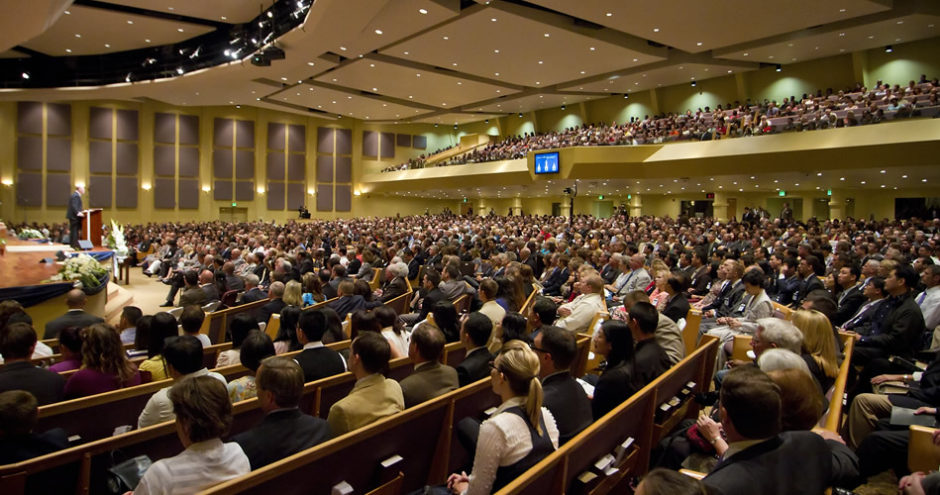In the spirit of new beginnings associated with the new year, I’ve recently led our church to begin occasionally confessing a creed as part of our weekly worship gatherings. Though I was raised in the sort of Baptist churches that scorned such practices as belonging to Roman Catholics (or Episcopalians or Lutherans or Presbyterians or Methodists), I’ve since become persuaded of the value of corporate confession—and I’m leading a group of mostly similarly raised Baptists to embrace this slice of liturgy.
What would prompt a “no-creed-but-the-Bible-Baptist” to adopt such a practice? Well, first and foremost, the Bible. The ancient Hebrew Shema (Deut 6:4) was itself a form of corporate confession and psalms such as Psalm 136 and the Songs of Ascent (Pss 120–134) were similarly used in public settings. In the New Testament era the practice emerged early in the church’s worship, and a number of these ancient confessions were taken up and preserved in apostolic teaching (e.g., Rom 1:3–5, 1 Cor 15:3–7, Phil 2:6–11, 2 Tim 2:8). Most persuasive is 1 Timothy 3:16, which contains both a preamble and the content of confession:
“Great indeed, we confess, is the mystery of godliness:
He was manifested in the flesh,
vindicated by the Spirit,
seen by angels,
proclaimed among the nations,
believed on in the world,
taken up in glory.” (ESV)
Though none of these evidences are necessarily decisive for the practice of corporate confession, in what remains, I’ll outline some reasons Bible-loving, sheep-equipping pastors in all sorts of churches should consider taking the plunge.
Confessing creeds allows the church to:
(1) Declare its faith. The Apostle Paul teaches, “if you confess with your mouth that Jesus is Lord and believe in your heart that God raised him from the dead, you will be saved” (Rom 10:9). Confession is constitutive of the Christian faith, because following Christ includes both believing the gospel and subscribing to central truths which the church has confessed throughout the centuries. While “thin” confessions of faith can surely represent saving faith (e.g., the thief on the cross), these should soon give way to “thick” confessions which more robustly account for the particularities of our belief. Creeds put flesh on the bare bones of justifying faith and provide a grammar for articulating the hope which is in us.
(2) Express common faith. No culture or age—including our own late modern Western one—can lay exclusive claim to the Christian faith. But churches can inadvertently become detached from the great communion of saints to which they belong. Even as we gather as distinct bodies of believers situated in our own cultures and local histories, we stand with like-minded bodies throughout the world presently and across the ages who, having been founded on the teaching of the apostles and prophets, have similarly been transformed by the gospel. Ours is a broad and historic faith, and the act of corporate confession underscores these realities both by pointing backward to saints who have gone before and across the globe to our contemporaries who make common confession.
(3) Sum up its faith. A common objection to the use of creeds is that they seem to compete with, or supersede, the authority of Scripture. The “no creed but the Bible” slogan—ironically an extra-biblical statement itself—reflects this instinct. But we confess particular words of faith not because they take the place of or have the same authority as Scripture, but because these words faithfully summarize the teaching of Scripture and help point us to that which is most important. Creeds are only authoritative inasmuch as they represent biblical doctrine. We believe, teach, and confess the creeds precisely because we believe the Bible—and we trust the corroborating witness of the church over its twenty centuries.
(4) Teach the faith. God has given shepherds and teachers to equip the saints for the work of ministry, that they would grow to maturity and ultimately conformity to Christ. The regular confession of creeds serves this purpose by teaching consensus doctrinal summaries in a memorable and concise format. By mastering, say, the Apostles’ Creed, every Christian would be equipped with an outline of the essential doctrines of their faith. This serves not just evangelistic efforts, but also basic discipleship—especially in the case of parents shepherding the hearts of their children into the truths of the faith. These benefits accrue from simple repetition with minimal impact to the length of the worship gathering.
(5) Guard the faith. The subtle threat of false doctrine is ever present. Whether from alternate religions (Latter Day Saints, Jehovah’s Witnesses, Islam) or liberal redefinitions of the historic Christian faith, churches must labor to guard the faith in an increasingly pluralistic society. To this end, confessing a creed is similar to the old saying that “the best defense is a good offense”: regular confession builds a framework for sound doctrine and helps believers identify the parameters of their faith. What is not known cannot be guarded, and pastors who seek to guard their flock from wolves must be proactive in training their sheep in sound doctrine.
Though sadly stigmatized and foreign to many evangelical churches, the corporate confession of creeds can be a rich, fruitful element of worship that binds saints together and deepens theological understanding. When led well, they can promote health and strength in the local church and serve as a stirring witness to the unity of Christ’s bride.





